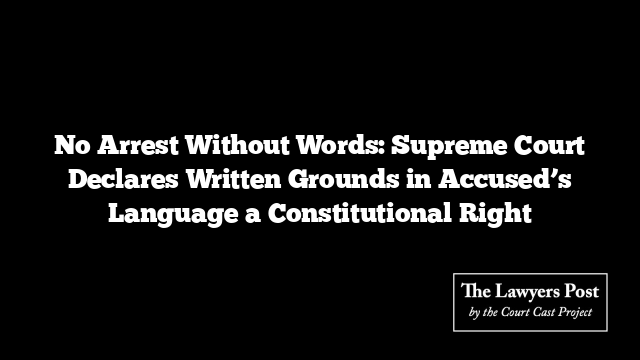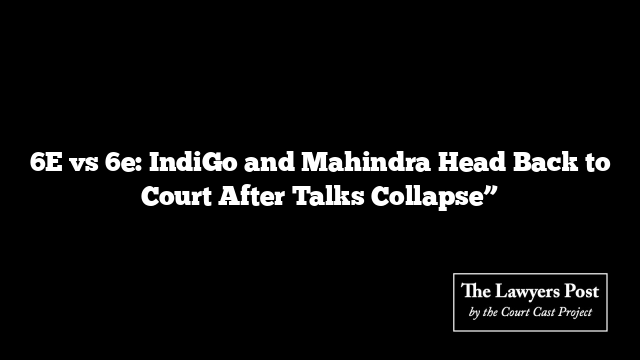The Supreme Court has drawn a firm constitutional line — every person taken into custody, under any law, must receive the written grounds of their arrest in a language they understand. No exceptions, no shortcuts.
A Bench led by Chief Justice BR Gavai and Justice AG Masih held that this right is not just procedural, but a pillar of personal liberty safeguarded by Articles 21 and 22(1) of the Constitution. The Court’s ruling came while examining the legality of arrests made without providing written reasons, in a batch of appeals linked to the 2024 Worli BMW crash case from Mumbai.
According to the Court, merely reading out the reasons for an arrest is not enough — the accused must receive them, in writing, in a language they can comprehend. Anything less, the judges said, would hollow out the constitutional protection meant to prevent arbitrary detention.
“The grounds of arrest must be furnished in writing, in a language the person understands, imparting clear and sufficient knowledge of the facts that justify the arrest,” the Bench declared. “Reading them aloud does not fulfil the constitutional mandate.”
The Court clarified that this applies to all offences — whether under the Bharatiya Nyaya Sanhita (BNS), its predecessor the IPC, or any other statute.
Recognising that real-world policing sometimes unfolds in haste, the judges allowed one narrow window: if immediate written communication is impossible — say, when a crime is caught in the act — the officer may first explain the reasons orally. But that leeway ends quickly. Written grounds must still reach the accused within a “reasonable time,” and in any case no later than two hours before they are produced before a magistrate for remand.
That two-hour rule, the Court said, “strikes a judicious balance” between investigation needs and fundamental freedoms, ensuring the accused and their counsel have a fair chance to prepare before the remand hearing.
Failure to comply with this time frame will invalidate the arrest and any subsequent remand, the Court made clear. The arrested person must then be released, though investigators may later seek custody again — only after supplying proper written grounds and explaining the delay, to be reviewed by a magistrate within a week.
The judgment distilled its directions into four binding commands for every arrest henceforth:
- The duty to inform an arrestee of the grounds of arrest is mandatory for all offences under all laws.
- These grounds must be communicated in writing and in the language understood by the arrested person.
- If immediate written communication is not possible, the reasons may be conveyed orally, but written grounds must follow within a reasonable time and at least two hours before the person is produced for remand.
- Non-compliance renders both arrest and remand illegal, entitling the person to release.
Calling this right “an inseparable extension of personal liberty,” the Court directed that copies of the judgment be circulated to all High Courts, States, and Union Territories to ensure uniform enforcement nationwide.
With this ruling, the Supreme Court has effectively reaffirmed that in India’s justice system, even in moments of arrest, the rule of law must speak — and it must speak in a language the citizen understands.





